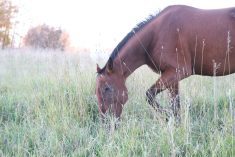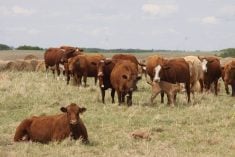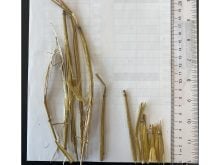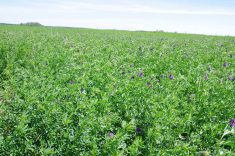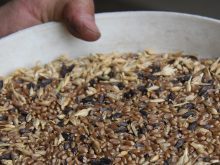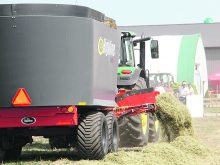Targets odour-causing bacteria | Micro-Bac combines probiotic and yucca extract to reduce ammonia
A new product from Canadian Bio Systems is designed to reduce gaseous emissions from swine and poultry.
The product, called Micro-Bac, uses a yucca extract and a live bacteria, pediococcus acidilactici, to reduce ammonia by stabilizing the digestive systems of animals.
Odour from animal manure occurs when bacteria ferments, producing gas that is eventually released by the animals. The new product aims to replace some of the bacteria that produce foul-smelling gas with probiotics that have a less offensive smell when emitted.
Andrew VanKessel, professor of animal and poultry science at the University of Saskatchewan, said being able to determine which bacteria are causing odour is key.
Read Also

Beef check-off collection system aligns across the country
A single and aligned check-off collection system based on where producers live makes the system equal said Chad Ross, Saskatchewan Cattle Association chair.
“If you know which (are the) bacteria and which are the compounds, then you can start to design strategies that would specifically reduce the activities of those bacteria or the odiferous compounds that they generate,” said VanKessel.
Yucca extract is an enzyme inhibitor that reduces the formation of ammonia from nitrogen. The combination of the extract and bacteria is what makes Micro-Bac different from other products.
“Normally, in the marketplace people would have to add two separate products, either the cactus extract would be one product or they would add a probiotic as a second product,” said Rob Patterson, technical director at Canadian Bio Systems.
“ So you’re having to do two things into the feed. The advantage of course is you can put in one product and get both benefits at the same time.”
Patterson said the product was developed mainly to help producers save room in their feed mills by being able to use one product with two benefits.
He said the product has been gaining momentum across the Prairies, but it’s still fairly new.
Denise Beaulieu, a research scientist at the Prairie Swine Centre near Saskatoon, has not studied this product in particular, but she knows similar products have struggled to be successful.
“A lot of these products are kind of farm specific: they might work in one situation and you might not see an effect on another,” she said.
“So it depends upon the problem you’re trying to solve, and you know some of them are a little bit diet specific.”





